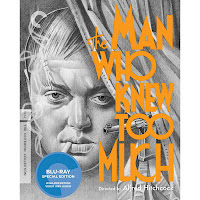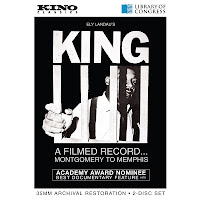the traveler's resource guide to festivals & films
a FestivalTravelNetwork.com site
part of Insider Media llc.
Film and the Arts
January '13 Digital Week II
- Details
- Parent Category: Film and the Arts
- Category: Reviews
- Published on Friday, 18 January 2013 05:00
- Written by Kevin Filipski
Dance on Camera Festival Screens Two Classic Documentaries
- Details
- Parent Category: Film and the Arts
- Category: Reviews
- Published on Friday, 18 January 2013 00:03
- Written by Jack Angstreich
 Busby Berkeley proved to be a genial and modest interviewee in his enjoyable entry in the excellent Cinéastes of Our Time series, being screened in this year's Dance on Camera Festival (February 1 - 5, 2013) hosted by the Film Society of Lincoln Center (70 Lincoln Square #4, New York, NY). The first half of this documentary — an extended interview with this great innovator of film musicals, interspersed with delightful clips of some of the choreographic numbers he directed — is devoted to Berkeley's life before his major achievements in Hollywood. He discusses his military schooling and time in the army during World War I, his success as a Broadway actor and as a director of plays in Northeastern stock companies, before securing renown for his original approach to directing stage musicals.
Busby Berkeley proved to be a genial and modest interviewee in his enjoyable entry in the excellent Cinéastes of Our Time series, being screened in this year's Dance on Camera Festival (February 1 - 5, 2013) hosted by the Film Society of Lincoln Center (70 Lincoln Square #4, New York, NY). The first half of this documentary — an extended interview with this great innovator of film musicals, interspersed with delightful clips of some of the choreographic numbers he directed — is devoted to Berkeley's life before his major achievements in Hollywood. He discusses his military schooling and time in the army during World War I, his success as a Broadway actor and as a director of plays in Northeastern stock companies, before securing renown for his original approach to directing stage musicals.
Invited to Hollywood, Berkeley revolutionized the musical genre by conceiving numbers for the camera and orchestrating them with a montage style that seems almost High Modernist — and was viewed as such by some perspicacious, contemporary commentators — an effect which he carefully prepared by precise storyboarding before shooting; he broke with standard practice by employing only one camera, so meticulously worked out were his visual ideas. If Berkeley never quite attained the status of a full-fledged auteur — like Vincente Minnelli, his eminent successor — his brilliantly crafted work was thoroughly cinematic and his dance sequences endure as some of the most remarkable on film.
Shirley Clarke's beginnings as a dancer and later as a dance-filmmaker are not readily detectable in her three major features of the 1960s, The Connection, The Cool World, and Portrait of Jason; nor is this history more than briefly alluded to in Rome Is Burning (Portrait of Shirley Clarke), co-directed by Noël Burch and André S. Labarthe and one of the most interesting episodes in Cinéastes of Our Time, also screening in this series. Burch, whose career trajectory has been unusual and who was a major critic and film theorist, represents, in his person, a locus linking the American avant-garde, the modernism of, for example, Jean-Luc Godard, and Marxist analysis, conferring upon him a peculiar appropriateness to superintend a documentary on as protean a figure as the politically and aesthetically radical Clarke. Clarke's early short films were, at least in their surface appearance, in something akin to the visionary mode of American independent filmmaking of the 1950s, if closer in resemblance to the work of minor artists of that time, such as Mary Ellen Bute, rather than to titanic figures like Stan Brakhage. Rome Is Burning is notable for resembling a film that Clarke might have directed herself in the 1960s, with some other subject as the center of an experimental portrait. Jacques Rivette and Yoko Ono, whose own directorial efforts bear some affinities with Clarke's major work, are minor participants in the bohemian atmosphere here, where the distinguished filmmaker holds court entertainingly, in a film punctuated by arresting clips from her key features.
For more information, go to: http://www.filmlinc.com/films/series/dance-on-camera-2013
Dance on Camera 2013
February 1 - 5, 2013
Film Society of Lincoln Center
70 Lincoln Square #4
New York, NY
January '13 Digital Week I
- Details
- Parent Category: Film and the Arts
- Category: Reviews
- Published on Friday, 11 January 2013 05:00
- Written by Kevin Filipski
Film Review: The Nature of Heroism and "Zero Dark Thirty"
- Details
- Parent Category: Film and the Arts
- Category: Reviews
- Published on Tuesday, 08 January 2013 09:56
- Written by Matt Oakes
 Zero Dark Thirty
Zero Dark Thirty
Directed by Kathryn Bigelow
Starring Jessica Chastain, Jason Clarke, Kyle Chandler, Mark Strong, Joel Edgerton, Chris Pratt
Based on the real life exploits that led to the location and assassination of Bin Laden, Zero Dark Thirty presents intelligence as a process of patience rife with moral ambiguities.
We’re introduced to our protagonist Maya, played here by Jessica Chastain, by way of a Guantanamo-esque torture sequence which happens to be her inaugural assignment after arriving fresh-faced to Pakistan. What plays out subverts our expectations of Bush/Cheney era torture tactics.
It’s less of Jack Bauer-fueled “Where is the bomb?” stylings and more a drawn-out game of carrot-and-stick lead by an outwardly bipolar interrogator, played by Jason Clarke, performing the role of both the good and bad cop but the result is equally, if not more, distressing.
This is a harsh reality where humanity is chiseled away. Like Chastain’s Maya, we know we can look away from the water-boardings taking place in front of us but that know we need to watch.
Many have pointed fingers at director Katheryn Bigelow (The Hurt Locker) and screenwriter Mark Boal (The Hurt Locker) for legitimizing the use of torture but these accusations are a little more than fuzzy.
While these factual accounts may raise an opportunity to debate American intelligence gathering techniques, to accuse Bigelow of supporting torture is analogous to accusing Coppola of aggrandizing gangster vengeance or Spielberg of reveling in dino mass murder.
A documentarian should not be held accountable for the views and mannerisms of their subjects as Bigelow should not be for hers. Her task her is to present a true story in an interesting manner- to play mediator between art and reality. In that capacity, she has exceeded herself.
But let us delve further into the film itself. Zero Dark Thirty is a slow-moving train with a foregone conclusion but the strength of the film lies in the amplification of our emotional investment which, for the most part, delivers.
The story at the center is truly miraculous and one that needed to be told. In essence, it’s the tale of a modern unsung American heroine who pursued her convictions to the point of disrepute and chastisement.
Losing nearly everything along the way, Maya is a woman on a mission- a mission to kill the most high profile terrorist to ever live. But don’t expect this mission to involve shadowy espionage and state-of-the-art gadgetry as most of it plays out in a cubicle. This is realism 101.
It’s hardly a spoiler to say that her goal is eventually executed but don’t expect a “Mission Accomplished” banner. No, it’s a deeper film than that- a film that explores the consequences of obsession and the nature of patience, the burying of grief and the pain of success. Lacking are the tattered flags, melodramatic victory speeches and hoorahs of pro-Americano filmmakers like Michael Bay, replaced by a more forward looking message of “where do we go from here?”
To think that this film was originally constructed without the eventual tagging of Osama Bin Laden is shocking. I truly cannot imagine this film without that cathartic pinnacle. It’s a testament to Bigelow’s talent that she could even conceive of this film prior to his eventual take down but also points to some of the film's flaws.
While it’s hard to pinpoint Bigelow’s intent, much of the film is a series of knitted together factoids-- little vignettes that play into the overarching mission but often do little to gain much traction towards that goal. This plodding storytelling makes some moments seem inconsequential and burden the film making it at times yawnable.
Having said that, the perceived boringness does play into the central message of intelligence and heroism as patience. So is Bigelow in effect challenging the audience to undertake this same patience to prove a point about heroism? We can only wonder.
To some, Zero Dark Thirty may overindulge in its 157 minute run time, but to call the end product unfulfilling is to misunderstand the journey. This is not a ragtag, shoot-em-up, tag ‘em and bag ‘em, round up a posse, rara America scenario. This is carefully constructed, meticulously plotted realism. It’s a procedural in both product and process and the end result is a modern history lesson that sneaks an age old adage about the notion of heroism.
More Articles...
Newsletter Sign Up





































